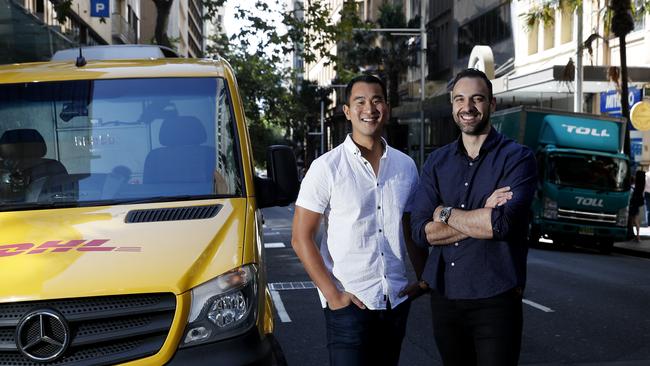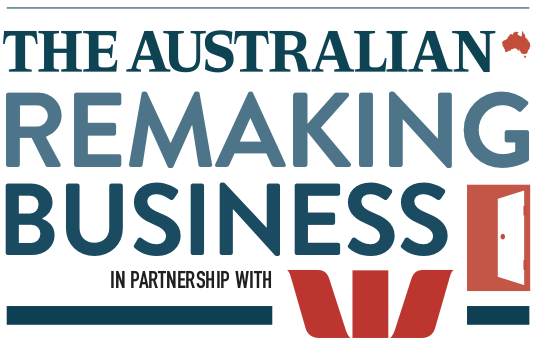How Shippit got lean and profitable during COVID
With an early eye on COVID-affected retail supply from China, logistics platform Shippit moved quickly to streamline operations. It has put them in good stead for the take-up in online shopping.

Logistics software provider Shippit was one of the first companies to recognise the scale of COVID-19’s impact. Powering fulfilment for the likes of Harvey Norman, Cotton On and Kathmandu, they started seeing how supply chains were freezing up China well before most companies had an inkling of how big the problem would be.
They moved quickly, shifting to fully remote working in February and started sharpening the razor when they started to see demand soften.
For Rob Hango-Zada, company co-founder, it was an enforced maturation of a five-year-old business that had been enjoying the growth spurts of a fast-moving start-up.
“Our habit was always to invest ahead of growth but we took a more conservative approach and felt the need to really cut deep and quickly to preserve some precious capital,” he told The Australian’s Remaking Business live audience.
Hiring stopped, salaries were frozen and rulers were run over any non-essential software subscriptions to jettison bloat. They quickly came to realise that wouldn’t be enough and shifted their mindset to a retail market of “zero to no growth”. Lay-offs ensued.
“We cut back on sales and some core operations and reduced layers of management with a focus to preserve capabilities and maintain a certain level of service,” Hango-Zada said.
“We had a beautiful product road map. We’re a software business, so we had a lot of grand plans and when we went through this whole exercise, we completely reset our strategy.
“We took on a mantra and mindset of austerity within the business. Cost control was king.”
Where the company previously had that start-up mentality and methodology that afforded a lot of latitude to employees to innovate inside a strategic framework, instead the leadership team set team targets to “maximise revenue, minimise costs” looking at five areas of the business including finding new markets and launching products, improving the customer experience and reducing non-staff operating costs.
“We did that for a quarter and it changed our culture. It went from one which was a little bit more start-up, a little bit more happy-go-lucky to a business which was really determined to succeed and pull through. The team really dug deep,” Hango-Zada said.
They put in place tools to better automate the business, implementing a new customer relationship management tool, a new billing system and other optimisation software they had put off during the growth phase. It led to their first profitable quarter since the company was founded and reinforced to Hango-Zada the need for constant reinvention.
“It’s kind of our version of digital transformation,” he said.
“We’re a digital native business but for us, looking at automating processes around sales, around how we bill customers, and around how we operate the company was really important.”
Just as Shippit was getting lean, the downturn they had planned for suddenly went in the opposite direction. Sales volumes tripled on the platform in the first few weeks of the shutdown as millions of people started to work from home, filling online carts with furniture for home offices, gym and exercise equipment and coffee and coffee machines, all while the high-end fashion retailers who had been such a vital part of the platform since its inception saw sales dry up. The frenzy had subsided somewhat, Hango-Zada said, but demand is still far higher than pre-COVID.
Hango-Zada is particularly impressed with the ingenuity shown by businesses who have successfully made the switch to online.
“I was speaking to Sal Malatesta, who’s the founder of Saint Ali Coffee Roasters down in Melbourne. All of a sudden overnight, their business was decimated. But they pivoted really early on and created a bit of movement with their brand, they opened a general store. Now they sell more hand sanitiser than coffee and more personal protective gear than brewing equipment so they’ve done really well,” he said.
That innovative spirit is even more important now the second lockdown in Melbourne is underway. According to a recent survey by the Australian Chamber of Commerce and Industry (ACCI), about one third of businesses were concerned about their viability in May, but by August that number had increased to two thirds.
Lisa Livis, small business banking spokeswoman for Westpac said the lockdown was taking its toll on

businesses in Victoria and the businesses that were most successful in navigating the lockdown were those who both kept a tight rein on operating costs while identifying new areas for additional revenue.
“Their priorities were maintaining income, looking at their cash and keeping their people employed. It was about really sticking to those core functions, while also looking for other opportunities,” Livis said.
“Customers who have had really good operational excellence, have been going to their advisors such as their accountants and their relationship manager to do scenario analysis — what’s the worst case, what’s the expected case and what’s the best case. They’ve really hoped for the best but planned for the worst.”
One factor that has been keeping many businesses alive has been the JobKeeper program, with ACCI saying that 60 per cent of firms were reliant on the subsidy for survival.
Hango-Zada said it was definitely a factor in assisting their retail customers build and service an online clientele.
“JobKeeper has been an absolute godsend for a lot of our retailers, bringing their staff back to stores and back to work and, using our technology, turning the stores into fulfilment centres so they could get products to customers a lot quicker when they weren’t actually walking into stores themselves,” Hango-Zada said.
While Shippit has been in the enviable position of catching a favourable wave during the COVID lockdown, the experience overall has been one of maturation for the five-year-old business.
The rapid experimentation and willingness to fail from their start-up days has been tempered by the pain of having to let staff go.
“Before, if we failed, it was OK. But I think the cost of failure is a lot greater for our business now. We’re a little bit more ‘measure twice, cut once’ in our mindset,” Hango-Zada said.
Tune into the next Q&A live event Wednesday August 26 at 7:30pm to hear how yoga studio Body Mind Life is building a global digital audience, and how Who Gives a Crap managed in the great toilet panic buy at the start of lockdown.


